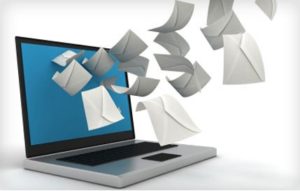When leaders use email to avoid confrontations, they’re often abdicating leadership. ~Michael Hyatt
 Given that we’ve heard a lot about emails in this presidential campaign, it seemed like a timely topic for all leaders. We’ve likely all been there. There’s some email that we either regret sending or now realize that another communication method would have been a better choice.
Given that we’ve heard a lot about emails in this presidential campaign, it seemed like a timely topic for all leaders. We’ve likely all been there. There’s some email that we either regret sending or now realize that another communication method would have been a better choice.
Sometimes we hide behind email to avoid the emotional discomfort, or we’re just simply in too much of a hurry and firing off that email will save us time, we think, so that becomes our preferred method of communication.
Too often we take the easy and often cowardly option of using email or text messaging to avoid the emotional discomfort of a real time conversation. ~Margie Warrell
With the help of Michael Hyatt and David Grossman, I’ve created my own list of when leaders should not use email.
- To give bad news, or to critique or criticize. This lands on the top of everyone’s list for when not to email; hopefully it doesn’t need further explanation.
- To respond to a critique or criticism. When you’re the recipient of that critical or complaining email, responding via email only throws more fuel on the fire. Don’t follow their lead; as Michelle Obama has said, “they go low, you go high.” Pick up the phone or walk down the hall.
- When the recipient(s) deserves the ability to respond in real time (email is typically not in real time). I think many leaders do this unintentionally, in an effort to save time, to get all the items checked off their to-do list, they default to email in these situations. It may save time in the short-term, but not in the long-term. And it can quickly erode trust, integrity, and your ability to lead effectively.
- When it’s confidential. Again, seems obvious, but you have to ask yourself if the person on the receiving end might consider the content confidential, even if you don’t. You also have to assume that others (assistants, etc.) might have access to that individual’s email account.
- When context is important, that could be easily misunderstood, especially if it could be emotionally-charged. We can all think we’ve explained ourselves well in an email, but if the topic warrants explanation, then it probably warrants a different mode of communication other than email.
- To compliment or praise someone. No one else has this one on their list, but I’m putting it on mine. Yes, you can compliment or praise someone in an email, but the impact will be far greater if it’s done either in person or in a handwritten note.
Test yourself. For one week, pause each time before hitting the send button and ask yourself, “will this email help or hinder my leadership”?